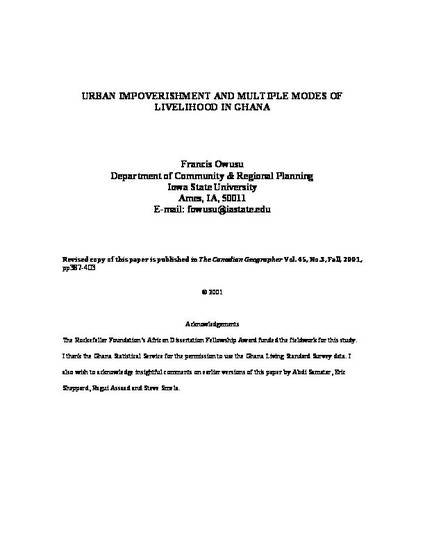
Many African countries experienced economic crisis in the 1970s and are currently restructuring their economies under the tutelage of the World Bank and the IMF. The restructuring process has had pervasive effects on the livelihood strategies of many people, as their established means of income generation have been disrupted. While survival of the urban poor has been studied, little is known of strategies of other social groups. Using Ghana as a case study, I argue that although urban poverty predates the implementation of structural adjustment program (SAP), the policies have created a favorable environment for the intensification of multiple livelihood strategies among of salaried employees. The paper finds that multiple livelihood strategies are practiced by a large number of salaried employees, but their involvement depends on many factors, including individual, family and household characteristics; access to capital and resources; opportunities offered by the urban economy; and the nature of formal employment.
Available at: http://works.bepress.com/francis_owusu/7/

This is the accepted version of the following article from The Canadian Geographer 45(3), Fall 2001: 387-403. doi: 10.1111/j.1541-0064.2001.tb01189.x, which has been published in final form at http://onlinelibrary.wiley.com/doi/10.1111/j.1541-0064.2001.tb01189.x/abstract.